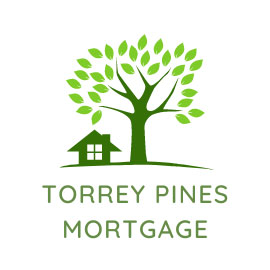What Makes a Condo Warrantable vs. Non-Warrantable?
Understanding Condo Warrantability and Its Impact on Your Mortgage
When purchasing a condo, the mortgage process involves additional considerations beyond standard homebuying factors like your credit score, interest rate, and loan program. One critical aspect is the Homeowners’ Association (HOA), which dictates property rules, maintenance responsibilities, and financial requirements. Early in the process, you’ll need to determine whether the condo is warrantable or non-warrantable, as this can significantly impact financing options and loan approval.
What Does ‘Warrantable’ Mean?
A warrantable condo meets the lending criteria set by government-sponsored entities (GSEs) like Fannie Mae and Freddie Mac. These organizations purchase conventional loans from lenders in the secondary mortgage market, meaning that condo properties must adhere to specific guidelines for lenders to sell these loans. If you’re using an FHA or VA loan, those agencies also have their own warrantability criteria, though they often align with Fannie Mae and Freddie Mac’s standards.
To qualify as warrantable, a condo community must meet requirements such as:
- Units cannot be part of a timeshare.
- A minimum owner-occupancy rate may be required.
- At least 10% of the HOA’s annual budget must go into reserves for maintenance and repairs.
- The community must maintain sufficient financial reserves and low delinquency rates in HOA dues.
- Restrictions on short-term rentals may also apply.
A warrantable condo typically offers an easier home-buying process, similar to purchasing a detached single-family home. It may also be in your best long-term interest to focus on warrantable condos for better financing options and property resale value.
What Makes a Condo Non-Warrantable?
A non-warrantable condo does not meet the lending criteria set by Fannie Mae or Freddie Mac, often due to factors such as:
- The complex is under construction or undergoing significant development.
- There is ongoing litigation involving the HOA.
- Too many units are investor-owned rather than owner-occupied.
- A single entity owns more than a certain percentage of units (e.g., for communities with 5-20 units, no entity can own more than two; for larger communities, typically no more than 20-25%).
Because non-warrantable condos present higher financial risk, they require additional documentation and stricter loan requirements. If you’re considering buying in a new construction project, be aware that these properties often face more hurdles in the loan approval process.
Government Loans for Condos: FHA and VA
If a condo is warrantable under Fannie Mae or Freddie Mac guidelines, it is likely eligible for FHA or VA loans. However, both FHA and VA maintain their own approved condo community lists, which may not always align with the GSEs’ approvals. FHA tends to have stricter criteria, while VA may be slightly more lenient.
For an FHA-approved condo loan, the requirements include:
- The borrower must meet standard FHA mortgage criteria.
- At least 50% of the community’s units must be owner-occupied.
- Newly built developments must have at least 30% owner occupancy.
FHA and VA loans do not impose extra costs for condo financing, and borrowers can generally obtain the same loan terms as for single-family homes.
Benefits of Buying a Warrantable Condo
Purchasing a warrantable condo offers several advantages:
- Easier Financing: Most lenders will only finance warrantable condos.
- Lower Interest Rates: Loans for warrantable condos pose less risk, often resulting in lower interest rates.
- Lower Down Payments: Depending on the lender, warrantable condos may require smaller down payments compared to non-warrantable condos.
- Better Resale Value: More buyers can secure financing for warrantable condos, making them easier to sell in the future.
Why Condo Warrantability Matters
Unlike single-family homes, condo ownership involves shared financial and structural responsibilities within the community. Lenders assess not only your financial profile but also the financial health of the HOA and the condo community itself. If an HOA is underfunded or has too many delinquent owners, lenders may see the property as a higher risk, affecting your ability to secure financing.
Buying a Non-Warrantable Condo: Considerations and Risks
If you decide to purchase a non-warrantable condo, be prepared for:
- Higher Down Payments: Lenders may require a larger upfront investment.
- Higher Interest Rates: Loans for non-warrantable condos are considered riskier.
- Potential HOA Financial Issues: High delinquency rates or low reserve funds could lead to higher HOA dues or unexpected special assessments for repairs.
- Limited Buyer Pool for Resale: When it’s time to sell, fewer buyers may qualify for financing, which could affect the property’s marketability and resale price.
At Torrey Pines Mortgage, we offer loan options for both warrantable and non-warrantable condos. However, it’s essential to weigh the risks carefully before committing to a non-warrantable property. Consult with your mortgage advisor and real estate agent to ensure you’re making an informed decision that aligns with your long-term financial goals.
